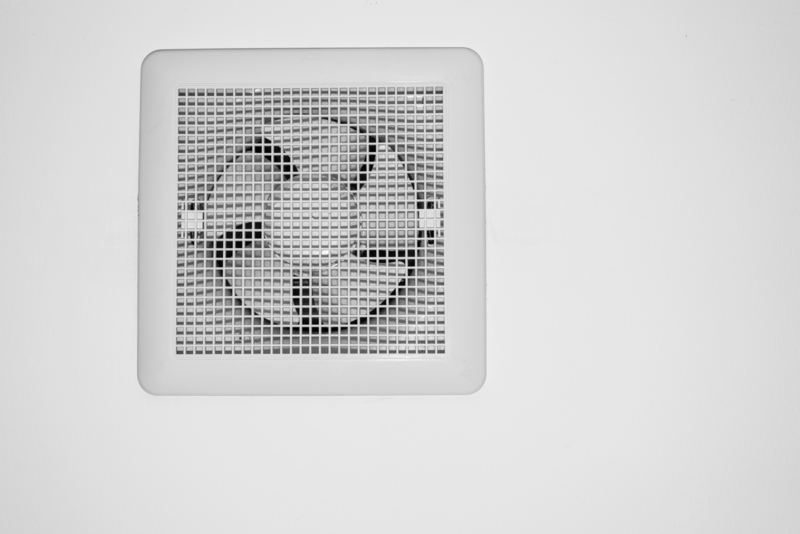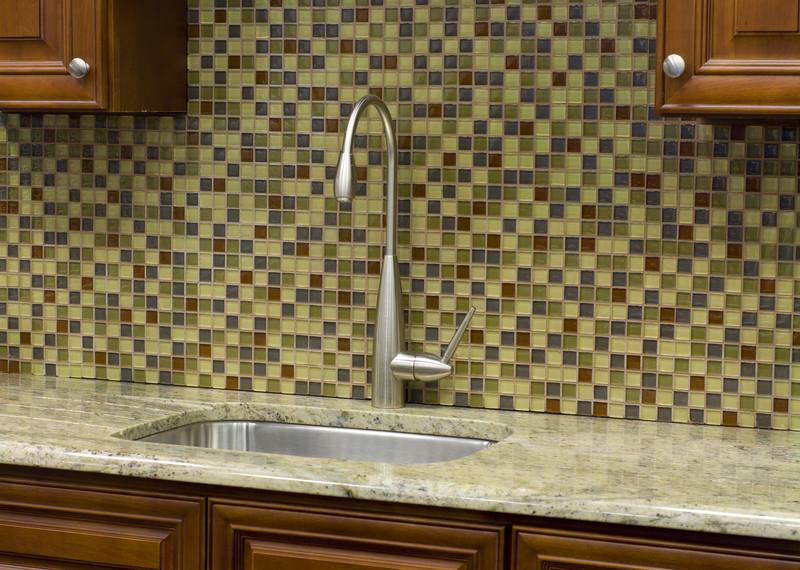Why Air Quality Matters in Residential and Commercial Spaces
Posted on 02/07/2025
Why Air Quality Matters in Residential and Commercial Spaces
Air quality is an often overlooked yet critical component of our overall health and well-being, especially in the environments where we spend the most time - our homes and workplaces. While outdoor pollution receives much attention, the quality of air inside residential and commercial buildings can have just as significant of an impact on our lives. With the rise in urbanization and the increasing amount of time people spend indoors, ensuring clean and healthy indoor air has never been more essential.
Understanding Air Quality: What Is It?
Air quality refers to the condition of the air within and around buildings, particularly as it relates to the health and comfort of building occupants. Indoor air quality (IAQ) is determined by various factors, including the level of pollutants, humidity, ventilation, and the presence of allergens or toxins.
- Physical pollutants: Dust, pet dander, and particulate matter.
- Chemical pollutants: Volatile organic compounds (VOCs), cleaning agents, and tobacco smoke.
- Biological pollutants: Mold spores, bacteria, and viruses.
High indoor air quality ensures a safe, healthy, and comfortable environment, while poor air quality can lead to a myriad of health issues and reduced productivity, impacting both residential and commercial spaces.

The Importance of Air Quality in Residential Spaces
Health and Well-Being at Home
Homes are sanctuaries where families rest, relax, and rejuvenate. The quality of air in residential spaces plays an essential role in the overall health of household members--particularly vulnerable populations such as children, the elderly, and individuals with pre-existing conditions like asthma or allergies.
- Respiratory Problems: Exposure to poor indoor air quality can lead to or exacerbate respiratory issues such as asthma, bronchitis, and chronic cough.
- Allergies and Irritation: Pollutants like dust mites, mold, and pet dander can trigger or worsen allergies, causing nasal congestion, itchy eyes, and skin irritation.
- Long-term Health Effects: Prolonged exposure to toxins and volatile organic compounds has been linked to serious conditions such as heart disease, lung cancer, and developmental issues in children.
Maintaining clean residential air is essential for protecting your family's health and ensuring a comfortable living space.
Mental and Emotional Benefits
Good indoor air quality also supports mental health. Stale, contaminated air can lead to fatigue, decreased cognitive function, and mood disturbances. On the other hand, improved air quality in homes contributes to better sleep, sharper focus, and a more pleasant living environment.
Value of Property and Comfort
Homes with efficient ventilation and air purification systems not only provide greater comfort but also retain higher property values. Potentials buyers and renters are increasingly conscious of air quality standards when choosing a place to live, making indoor air quality a key selling point for residential real estate.
Why Air Quality Matters in Commercial Spaces
Productivity and Performance
In office buildings, factories, and other commercial environments, air quality has a profound effect on employee productivity and performance. Studies consistently show that clean and well-ventilated workplaces reduce absenteeism, enhance worker concentration, and improve overall job satisfaction.
- Reduced Sick Days: Workers exposed to poor air are more likely to experience colds, headaches, and fatigue, leading to higher absenteeism.
- Boosted Concentration: Improved indoor air quality supports clear thinking and efficient problem-solving.
- Happier Clients and Visitors: Clean air leaves a positive impression on visitors, clients, and customers, reflecting professionalism and care.
Legal and Regulatory Compliance
In many countries, there are strict regulations governing indoor air quality in commercial spaces. Failing to comply can result in hefty fines and lawsuits, as well as damage to a business's reputation. Maintaining proper air quality is not just a health priority; it is a legal obligation for many businesses.
Protection of Assets and Equipment
Airborne particulates and humidity can damage sensitive equipment, electronics, and inventory. Ensuring high-quality commercial air helps protect valuable assets and prolongs the lifespan of machinery, reducing repair and replacement costs.
Main Causes of Poor Air Quality in Residential and Commercial Spaces
External Sources
- Vehicle emissions and industry pollution infiltrating through windows, doors, and ventilation systems.
- Pollen and outdoor allergens entering through open entryways or HVAC systems.
Internal Sources
- Building materials: Off-gassing from paint, varnishes, adhesives, and furniture.
- Biological contaminants: Mold growth due to moisture, pests, and poor cleaning practices.
- Human activity: Smoking, cooking fumes, and use of cleaning chemicals.
Insufficient Ventilation
Modern buildings are often tightly sealed to maximize energy efficiency. While this reduces heating and cooling costs, it can also trap pollutants indoors, making consistent ventilation critical for healthy indoor air quality.
The Effects of Poor Air Quality on Health and Productivity
Short-Term Health Effects
Immediate symptoms of exposure to subpar air quality include:
- Headaches
- Eye, nose, and throat irritation
- Fatigue and dizziness
- Worsened respiratory illnesses
Long-Term Health Risks
Prolonged inhalation of pollutants can result in:
- Chronic respiratory diseases (asthma, COPD)
- Heart disease
- Impaired lung development in children
- Increased cancer risk
Impact on Workplace Productivity
Poor workplace air quality is linked to decreased performance, increased absences, and higher healthcare costs. Employees are more likely to feel distracted, lethargic, and unsatisfied, all of which affect the bottom line of any business.
How to Improve Air Quality in Residential and Commercial Spaces
Enhanced Ventilation
Proper ventilation is the backbone of healthy indoor air quality. Ensure that fresh air regularly circulates throughout the building by:
- Opening windows when weather permits
- Installing energy-efficient mechanical ventilation systems
- Using exhaust fans in kitchens and bathrooms
Air Purification
Air purifiers equipped with HEPA filters can capture fine particles and allergens. For commercial spaces, consider installing HVAC system filters with a high Minimum Efficiency Reporting Value (MERV) rating to remove contaminants efficiently.
Humidity Control
Maintaining optimal humidity (30-50%) deters mold growth and minimizes dust mite populations. Use dehumidifiers in damp areas and fix leaks promptly.
Source Control and Regular Maintenance
- Minimize indoor pollutants by using non-toxic, low-VOC products.
- Implement strict cleaning routines to reduce dust and biological contaminants.
- Schedule regular maintenance for HVAC systems and replace filters frequently.
- Restrict indoor smoking and odor-producing activities.
Air Quality Monitoring
Invest in air quality sensors to monitor pollutant levels and track improvements. Many modern devices can detect VOCs, CO2 levels, and particulate matter in real-time, guiding necessary interventions for both homes and businesses.

The Role of Technology in Enhancing Indoor Air Quality
Advancements in technology have revolutionized the way we approach air quality management. Smart HVAC systems, automated air purifiers, and intelligent sensors make it easier than ever to maintain optimal conditions inside residential and commercial buildings.
- Smart thermostats integrate with ventilation systems to adjust air flow based on occupancy and detected pollutants.
- IoT-enabled air quality monitors send alerts for high pollutant levels and can trigger air purification devices to operate automatically.
- UV-C sanitizing lights installed within HVAC ducts can neutralize bacteria and viruses, reducing biological contaminants.
Conclusion: Prioritizing Air Quality for Healthier Spaces
Whether in a cozy apartment or a sprawling corporate office, air quality stands as a silent pillar supporting our health, comfort, and productivity. The evidence is clear: improving air quality in both residential and commercial spaces leads to positive outcomes for individuals and organizations alike. By understanding the sources and effects of indoor pollution, employing smart solutions, and fostering good habits, we can all breathe easier--and live better.
From physical comfort and safety to enhanced mental acuity and asset protection, the importance of air quality cannot be overstated. Don't wait for symptoms to manifest. Take proactive steps toward cleaner, fresher air today and experience the transformative power of high-quality indoor environments.
Key Takeaways
- Both residential and commercial indoor spaces benefit tremendously from improved air quality.
- Poor air leads to significant health, economic, and legal risks.
- Adopting practical strategies like ventilation, purification, and smart technology can make a measurable difference.
- Monitoring and maintenance are essential components of long-term air quality management.
Prioritize your indoor environment and invest in meaningful upgrades to create safer, more inviting, and healthier buildings for all occupants.



